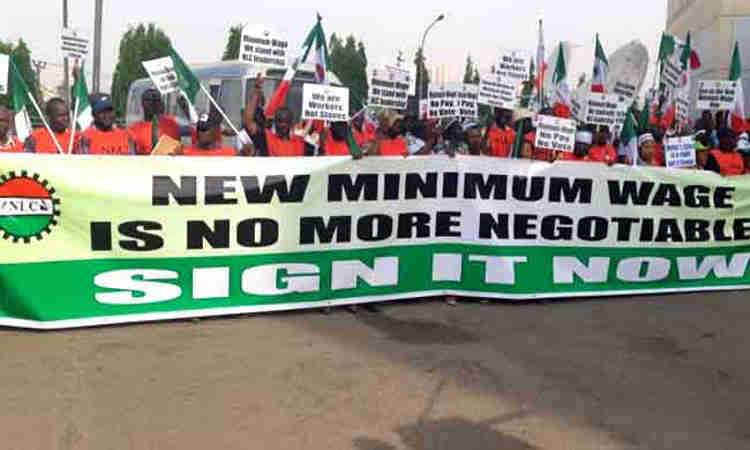The 36 state governors of the federation, Wednesday night, said states would negotiate independently on the consequential implications of the new minimum wage.
The Chairman of the Nigerian Governors Forum, NGF, and governor of Ekiti State, Kayode Fayemi, told journalists in Abuja that every governor was determined to continue negotiations with their workers.
The Nigerian Labour Congress, NLC, had warned that it would call workers out on strike on December 31, if negotiations were not wrapped up on the issue.
Fayemi observed that there was no need for organised labour to embark on strike later this month over the new minimum wage of N30,000 recently approved by the federal government.
He assured that governors would not backtrack on the new N30,000 minimum wage since it was not included in the communique of the meeting, the NGF chairman said the issue of payment on the minimum wage was already a settled matter, and that all the state governors had agreed to pay.
The Ekiti governor said further that “the matter which is yet to be resolved is the consequential adjustment salary increase for other categories of workers”.
Fayemi, however, said fingers were not equal because states would have to undertake a discussion over the consequential payment for the other levels at their various state governments.
He said: “The minimum wage is a settled matter, and the governors have indicated without any equivocation that we subscribe to the act of parliament that has been passed on the national minimum wage of N30,000, there is no debate and we have accepted that.
“But the negotiation thing is not so much about the minimum wage but it is about the consequential impact on the minimum wage on a higher level. And each state has started that process. If the Nigerian Labour is not fully aware of the status of the negotiations in the various states, we would be happy to share the information available to us with them.
“But as far as we are concerned, there is no opportunity or decision in the governor’s forum to backtrack on the agreed minimum wage.
“We would not do that. However, fingers are not equal, states have to negotiate in terms of the consequential implications for the other levels.
“For example, there may be a state that is in a position to pay N50,000. But what we can tell you is that no state would pay less than N30, 000 when we finally get to that point.”
The agreement over consequential adjustments on the new agreed N30,000 minimum wage had remained a major concern between the labour and the state governors.
The NGF had in October, said the agreement between the federal government and organised labour on consequential adjustments on the new minimum wage was not binding on state governments.
Fayemi had also assured that there would be consequential adjustments but that would be determined on a state by state basis.
President Muhammad Buhari signed the new minimum wage bill into law on April 18. But its implementation was stalled over salary adjustments and disagreement between the labour unions and government representatives.
Specifically, the problem centred on the issue of relativity and consequential adjustments of salaries for various categories of workers.
The federal government then argued that the minimum wage was for junior-level workers (levels 1 to 7) and that salary increase for other categories of workers would have to be negotiated.

